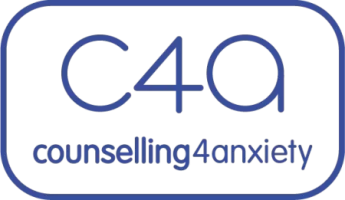The 'T' Word - Trauma
Recent medical research has demonstrated to us that disorders such as Obsessive Compulsive Disorder may well have a genetic component, an experiential one and an environmental component. This means that even if there is a genetic trait that predisposes someone to OCD, the experiences that people have and the environmental stresses that they go through are key triggers for the symptoms of OCD to start showing up in someone's life.
One aspect of those environmental and experiential conditions is the issue of trauma that people may go through in their lives. Here, I am referring to the definition of trauma that the well-respected physician and psychotherapist, Dr Gabor Mate, summarised as being,
(Trauma) “is not what happens to you; it is what happens inside you as a result of what happens to you … It is not the blow on the head, but the concussion I get.”
So, we need to move away from thinking about trauma as just being a major life incident. The term trauma can take place around language that children hear, for example, where they may experience internal effects and changes that happen within their cognition (their thinking), as well as within their nervous system. So even incidents like this can create perceptions within the minds of young children where language may elicit fears about the world around them or around people that may be referenced in a conversation. The result is a change in thinking which elicits fear in a child and which subsequently results in a dysregulation of their emotions over time.
What I find with working with clients who have OCD is that the issue of trauma comes up time and time again. Some have a singular experience that they can remember which has left a lasting imprint in their memory and thinking, leading to an 'old fear' that has been with them for some time, whilst others can remember and point to multiple traumas that they endured in their childhood and early adolescence.
The Trauma Link
Gabor also speaks repeatedly about trauma being a 'disconnection' with the self. A sense that the disconnection creates fear, a lack of grounded-ness and a sense that an individual cannot tap into resources within themselves that may help them to move past the trauma and the disconnection.
I find that working with people who have OCD brings up the resonance of the trauma that they previously experienced through thoughts, feelings, images and impulses which continue to repeatedly play on their minds. Within this state of disconnection with the self and with the 'here and now', (the present), clients find themselves in a historical place, focussed inwards and where they can palpably feel, think and go through the trauma experiences which affected them in their childhood or early adolescence. They remain in these cycles, feeling fear, apprehension and a sense of catastrophe whilst being unable to connect with any sense of resilience within themselves. This is the case since they have never had the chance to minimise, fully let go off these past traumas or even explore their sense of resilience for them to go through these events and situations.
Obsessions and Compulsions
We know that for many, there are mental ruminations and recurring thoughts that are deeply fearful and which trigger the amygdala and the 'fight and flight' response. The compulsions are a by-product of these mental obsessions, they are actions that are carried out by an individual to provide some temporary relief from the anxiety of the recurring thoughts. The problem is though, that compulsions keep the strength of the anxiety inducing obsessions going. They legitimise the strength of the obsessions, as though the obsessional thought is so 'hot' and problematic, that without the compulsion, something catastrophic may occur. In other words, the compulsions act much like a steam valve, supposedly letting off 'steam' and the anxieties that have pent up, though we know that compulsions ultimately strengthen and keep the whole process going.
As you are reading this, you might also sense something in the last sentence which feels superstitious or 'magical'. In fact, you would be right and there are cognitive distortions in the thinking patterns of people with OCD. For example, someone with OCD may feel that if they don't close a door seven times, something bad may happen against their loved ones and even the numbers chosen demonstrate a sense of the superstitious and of the magical; as though things could happen by association. Therapists obviously need to work with clients to explore the range of cognitive distortions that they have, the classifications of the distortions and to help the client get to a place where they accept that a behavioural change is needed going forward.
Exploring core beliefs that clients may also carry with them is essential and the two pieces of work - exploring core beliefs and explaining and exploring the cognitive distortions that they may have are essential work. Allied with this must be an agreed plan for exposure where the client exposes themselves to the very things that may be disturbing them. So, if they are scared of germs, therapists must work with their clients to expose themselves to situations where they are in close contact with things that may be slightly dirty or dusty.
Finally, it is essential that client's are able to find an alternative powerful narrative to the one that they are telling themselves because of the trauma. For in the end, a relevant and powerful narrative which draws them in and which weakens the thoughts and feelings that arise from the trauma, will give them a solid foundation to build from.

